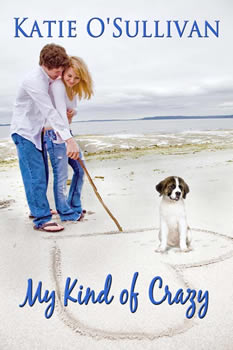CapeWomenOnline - Where Cape Women Shine
Your local venue for the women of Cape Cod to share their ideas, experiences and resources while inspiring each other in their life's journey
Inspire . Encourage . Network . Share
In her column The Write Way, author Katie O'Sullivan discusses the not-so-simple world of writing, editing and publishing.
If you have a question for Katie email her at katie.osullivan@yahoo.com
The Write Way: Taking your Manuscript to the Next Level
Navigating the Dreaded Synopsis
by Katie O'Sullivan
Ah, the lazy days of summer are upon us. Time for kicking back and reading a favorite beach book or poolside novel. In this column, however, we've been talking about writing your own book.
You've had a brilliant idea for a novel, and diligently carved time each day to write. You found a Writing Group or a Critique Partner you like. You reached the end of the story and actually typed "The End" on your manuscript. You've gotten feedback from your CP and polished your words until they sparkle on the page, finishing at least a second (or maybe a third) complete draft.
Now what?
Utilize your Writing Group
First, if you like your group or CP, don't ditch them! Use them! There's so much more writing to be done if you want to land either an agent or a literary contract with a small press. Typing "The End" is really just the beginning.
As I recommended in The Write Way column for Spring, writing groups and CPs are an important step in your writing process. They offer valuable feedback as you take these next steps toward the goal of being a published author.
Kathy Otten, author of A Tarnished Knight from The Wild Rose Press, says she'd be nowhere as a writer without her critique group. They meet once a week for 3.5 hours to exchange pages and give feedback, and she finds them "invaluable, not only for critiquing but for encouragement and support." Important enough to Kathy that she drives 85 miles round trip to be there!
Urban Fantasy author J.C. McKenzie loves her CP but adds, "Don't be afraid to ignore their suggestions and advice, either. It's your work, not theirs. Try to let the CP's suggestions sit before you look at your work again. Sometimes when you first read the comments, they seem overwhelming, but with a clear head, they can really make your manuscript pop!"
She jokes that a good CP is "worth their weight in royalties." Especially one who can help you tweak the dreaded synopsis.
What is a Synopsis?
A Synopsis is technically a brief summary of your story, but an agent is looking for something more. The synopsis needs to introduce your main characters, their motivations and the story arc all the way to its conclusion. But it also needs to convey that elusive thing known as Voice.
In short, the summary needs to sound like the book, boiling your 300 pages down to a mere three while telling the story from beginning to end and still letting the reader hear the sparkling wit or taste the sizzling passion that's at the heart of your manuscript.
If the synopsis sounds dry and boring, the reader will make similar assumptions about your book. If that reader is the agent you want to hook or the acquisitions editor you're trying to impress, you need to step up your game.
Standard synopsis formatting is third person, present tense, regardless of how the book is written. The first mention of a character's name should be in all caps, to be easily spotted.
1. Summarize the Chapters
Start by going through the manuscript chapter by chapter. Jot down one or two sentences to summarize each one. Make sure to include all major characters – the hero, the heroine, the villain, and any major supporting characters. Don't mention the guy who sells ice cream in chapter three and never appears in the story again. Too many names confuse the reader. Stick to main characters and ideas.
Don't forget to summarize the ending, and the wrap-ups to any minor plot points. The agent or editor wants to know there's a satisfying conclusion. Show that you know how to create a story arc from start to finish.
Next, read through and start to smooth it down so it has more flow. The first paragraph should set up the story. Where and when does this story take place? Who is the protagonist? What problems are they facing? Add the sentences from each chapter together into one document, dropping any repeated information.
2. Focus on Plot Points
Now read through again, focusing on plot. Make sure every event in the story logically leads to the next. Are there gaping holes in your story arc because you whittled down the words? Think of the flow in a "Because this happened, Then this happened" kind of way, to make sure it will make sense to someone who doesn't already know your story. Fill in the holes of missing plot or character motivation.
3. Focus on Character Development
Once the plot makes sense, go back and read through it again with more focus on the characters themselves. Does your main character grow and evolve through the story? Are each character's goals and dreams articulated? Does the reader see who they are at the beginning and how they're emotionally changed by the events in your story?
Agents and editors don't want to read about a main character who stays the same throughout the book. A reader needs to connect with the protagonist and see them grow to overcome the obstacles you throw in their way. Make the reader root for the protagonist and cheer out loud when they reach that goal.
And…you kind of need to get all that stuffed into your synopsis. The growth and the change and the need to cheer. That's what will hook you an agent.
4. Focus on Voice
And finally…read through it again for that thing I mentioned back at the beginning – your Voice. Add flavor. Add spice. Add emotion. Add snark, if that's what your voice sounds like in your manuscript. Let your voice shine through and dazzle the reader.
At the same time, try not to add too many adjectives and adverbs (the –ly words). Use stronger verbs and stronger adjectives, just like you did when you polished that last draft. You're paring down anyway, right? Turning 300 pages into a mere three means using the strongest words possible to convey your message.
5. Ask for Help
Your writing group or CP should be able to help you along this journey, just as they helped polish the manuscript. The idea is to have a synopsis that leaves the reader actually wanting to grab the full manuscript and jump right in, even though they already know how it ends.
But the process will also help you as an author, to examine your story in minute detail to see what are the truly important ideas, concepts and motivations. What really matters.
I won't lie, writing a synopsis is hard. Maybe even harder than writing the manuscript, because you don't get to use as many words to convey all the emotion and drama. But once you get going, it gets easier. And it can even be fun. Look at is as a challenge instead of a chore.
Next Steps
Once you've conquered the three page synopsis, you get to boil it all down one more time for the query, which is really only three paragraphs. And then you can boil it down again for the pitch, which is one to three sentences.
Next up on The Write Way? Query writing. There are lots of great online resources to help you get started with writing a query letter, and in the Fall column, we'll go over the basics and point you in the right direction to get started.
Until then, happy writing! And happy summer reading!
Got a question?
Email me at Katie.osullivan@yahoo.com and I'll answer it in the next edition!

Katie O'Sullivan loves editing, writing and playing with words. She lives in Harwich with her family, and the big dogs who "make" her walk on the beach every day.
She writes romance and adventure for young adults and the young at heart. Her latest young adult novel is BLOOD OF A MERMAID, published by Crescent Moon Press in May 2014. It's the sequel to last summer's best-selling SON OF A MERMAID.
Her newest Cape Cod romance is MY KIND OF CRAZY, published by The Wild Rose Press in March 2014. Available now exclusively on Kindle, the world-wide all-format release is slated for July 31, 2014.
Check the Event listings for upcoming book signings, or visit her blog for details.
For more information about working with Katie to make your words sparkle on the page, email her at katie.osullivan@yahoo.com





